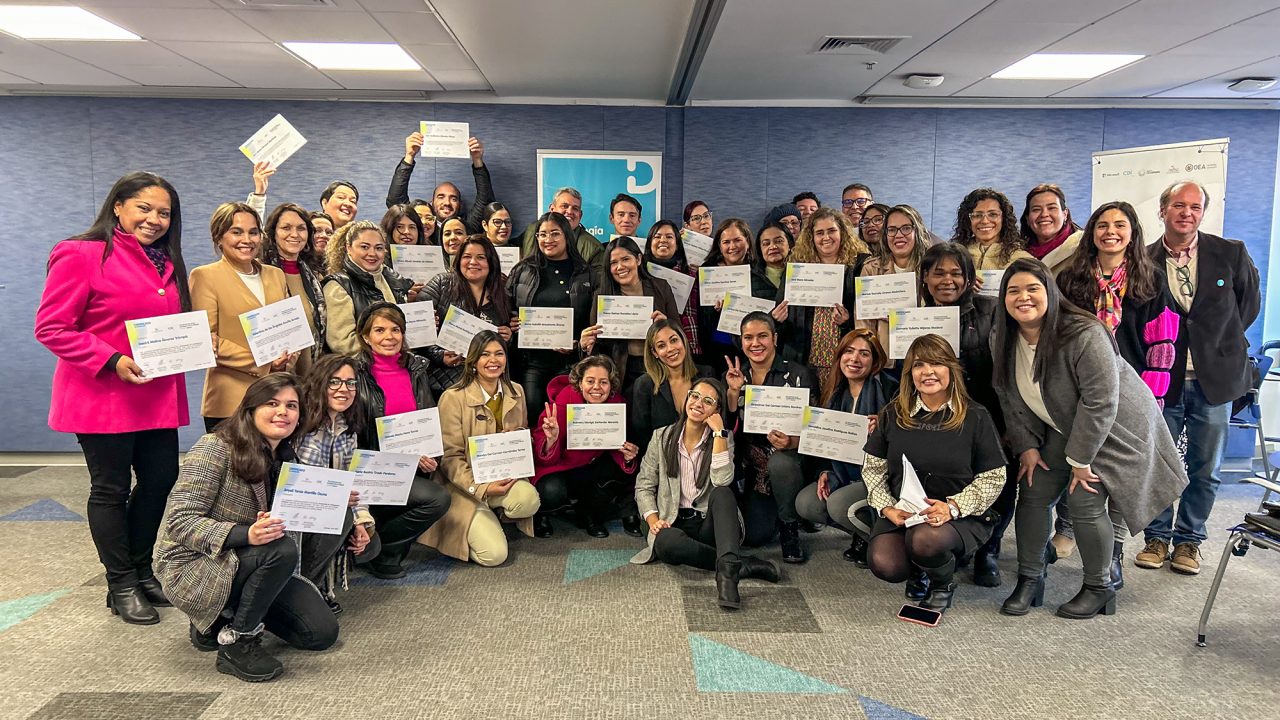Employers need talent capable of leveraging the latest tools and technology. Workers need the skills and confidence to pursue purpose-driven careers. Social impact organizations need to catch up to private industry to use data and AI for the common good.
And across the board, all are looking for rigorous global capacity-building efforts to meet their aligned needs.
That call to action, which is equal parts challenge and opportunity, was at the center of our Generative AI Skills Challenge, powered by data.org with generous support from Microsoft. With 581 applications received across 93 countries, it is clear that the scale of potential is tremendous.
“We were truly inspired here at Microsoft as we watched the projects unfold,” said Greg Bianchi, the director of partnerships at Microsoft Philanthropies. “Our team is really committed to partnerships that create opportunities in the digital economy–and particularly in the AI-enabled economy–and we seek to do that work to democratize access and provide opportunities in historically excluded populations.”
Microsoft joined data.org in sponsoring the challenge, with valuable capacity-building workshops and coaching resources provided by EY to the network of applicants.
The five organizations that were ultimately selected–Data Elevates, The Tipping Point, GIEVA, Mississippi AI Collaborative, and Myna Mahila Foundation–represent some of the best ideas and strategies in the field, and they came together for a recent webinar to discuss the lessons learned throughout the process.
Generative AI has the potential to revolutionize how we tackle global challenges thanks to its unparalleled ability to scale, but only if it is applied with a strong emphasis on community-led solutions that are informed by local context.
Uyi Stewart, Ph.D. Vice President of Inclusive Innovation and Analytics Mastercard Center for Inclusive Growth
Trust (to Start) the Process
The power brokers leading the AI revolution remain, in large part, in the global north. So, it is not surprising that many communities outside of that privileged group do not immediately trust the technological tools and solutions being developed without their input.
“Generative AI has the potential to revolutionize how we tackle global challenges thanks to its unparalleled ability to scale, but only if it is applied with a strong emphasis on community-led solutions that are informed by local context,” said moderator Uyi Stewart, the chief data and technology officer at data.org. “Trust is a key component of each of the awardee projects.”
From the get-go, the Generative AI Challenge sought to engage and empower a more diverse cross-section of leaders. Our awardees embraced that challenge and took thoughtful steps to acknowledge fears and build trust. Of the 4,712 people trained in total, 87 percent identified as women or non-binary, and an incredible 95 percent are at risk of exclusion from the digital economy.
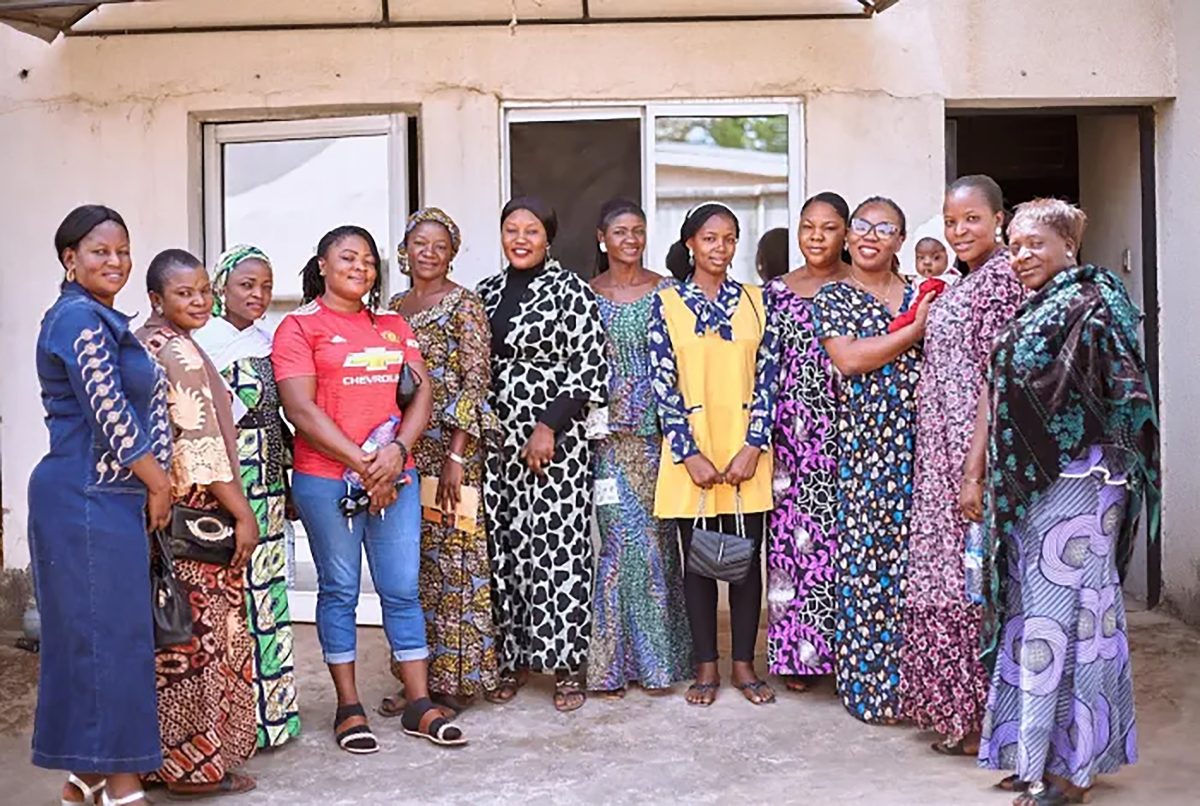
“Historically in Nigeria, when new technology comes into the system, there is a lot of resistance from everywhere, especially digitally connected technologies,” explained Dr. Daniel Newton Obaka, the president and co-founder of Global Integrated Education Volunteers Association (GIEVA), which is training and upskilling women entrepreneurs in northern Nigeria on the use of generative AI capabilities to create digital livelihoods.
Part of our role is to show people how AI is working at the base level and under the hood. The more we show people what it is and how it works, the concerns they have shift to enthusiasm.
Rob Segan Co-Founder and Head of Technical Direction Data Elevates
The Truth Will Set You Free
Part of building and maintaining trust is anchoring in honesty.
Newton Obaka spoke about the importance of recognizing the risks, limitations, and ethical pitfalls of generative AI, a message that his fellow awardees reinforced. Their projects each include training on the fundamentals of the technology, improving digital literacy, comfort, and confidence before pushing the limits of how AI can be applied and stretched.
“Part of our role is to show people how AI is working at the base level and under the hood,” said Rob Segan, co-founder and head of technical direction at Data Elevates, an organization skilling Venezuelan migrant women on generative AI through a Massive Open Online Course (MOOC). “The more we show people what it is and how it works, the concerns they have shift to enthusiasm.”
Building enthusiasm, he continued, is dependent in part on tailoring skill-building and problem-solving to the local context and the real problems marginalized groups are facing in their communities. Regularly asking questions about current needs and applications informs both program design and the outreach and recruitment strategy to identify the future DSI workforce.
“As a mission-driven organization, it’s really important that the power that’s coming with generative AI isn’t just going to people in cities or people with graduate degrees, but it’s also going to people that we work with, like marginalized populations and women and migrants and people working in rural areas,” he said.
By offering such a confidential and reliable AI tool, we are creating a safe space for women to not only access information and seek healthcare services without the fear of judgment, but also for them to upskill in this new age technology.
Tanvi Divate Co-founder of Rani Jobs Myna Mahila Foundation
Tools to Harness Technology
The Tipping Point (TTP) provides in-depth training, thoughtfully curated prompt libraries, and generative AI-enhanced mentoring to educators in remote settings in Greece. Yiorgos Nikoletakis, the CEO of TTP’s partner organization, 100mentors, said that they, too, are working with marginalized populations and those who are at risk of exclusion from the digital economy. What he said makes this technological revolution different, though, is that those communities can more easily and quickly be brought up to speed.
“Is AI categorically better than other tech solutions? Yes. The profound answer is that it has no technical prerequisites for the users. It’s the first technology that you can use only your natural language,” he said.
In his case, generative AI is getting better at recognizing the Cretan dialect by the day, improving adoption and trust in his participants, many of whom are over 50 and self-proclaimed “technophobes.”
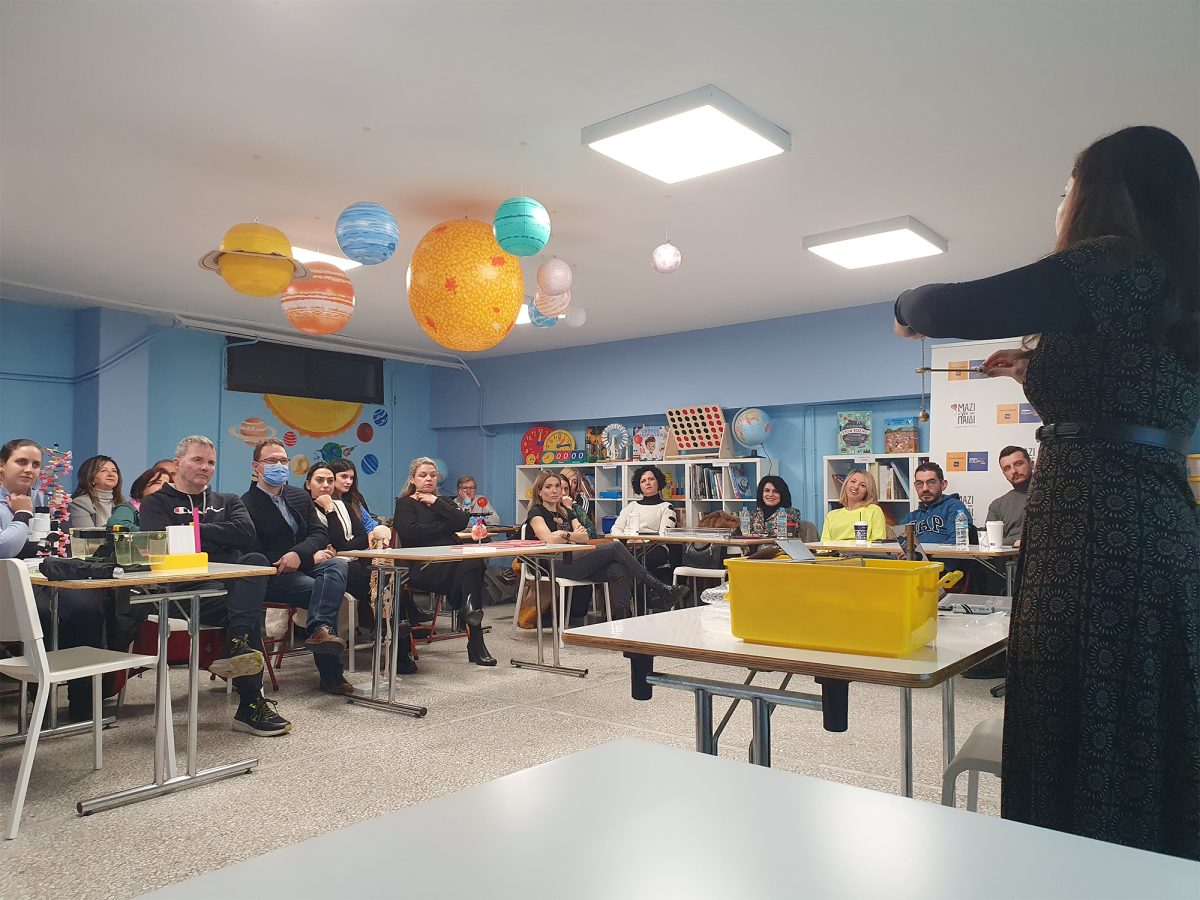
The need for better source data from underrepresented languages is a widely agreed upon challenge to improving equity in generative AI. Tanvi Divate, co-founder of Rani Jobs at the Myna Mahila Foundation, said local language and context not only improve AI tools, but increase the chance for trust, adoption, and potential interest in starting a new career. Myna Mahila is training their network of women Rani workers in generative AI to power a text-based AI platform designed to dispel misconceptions about women’s health.
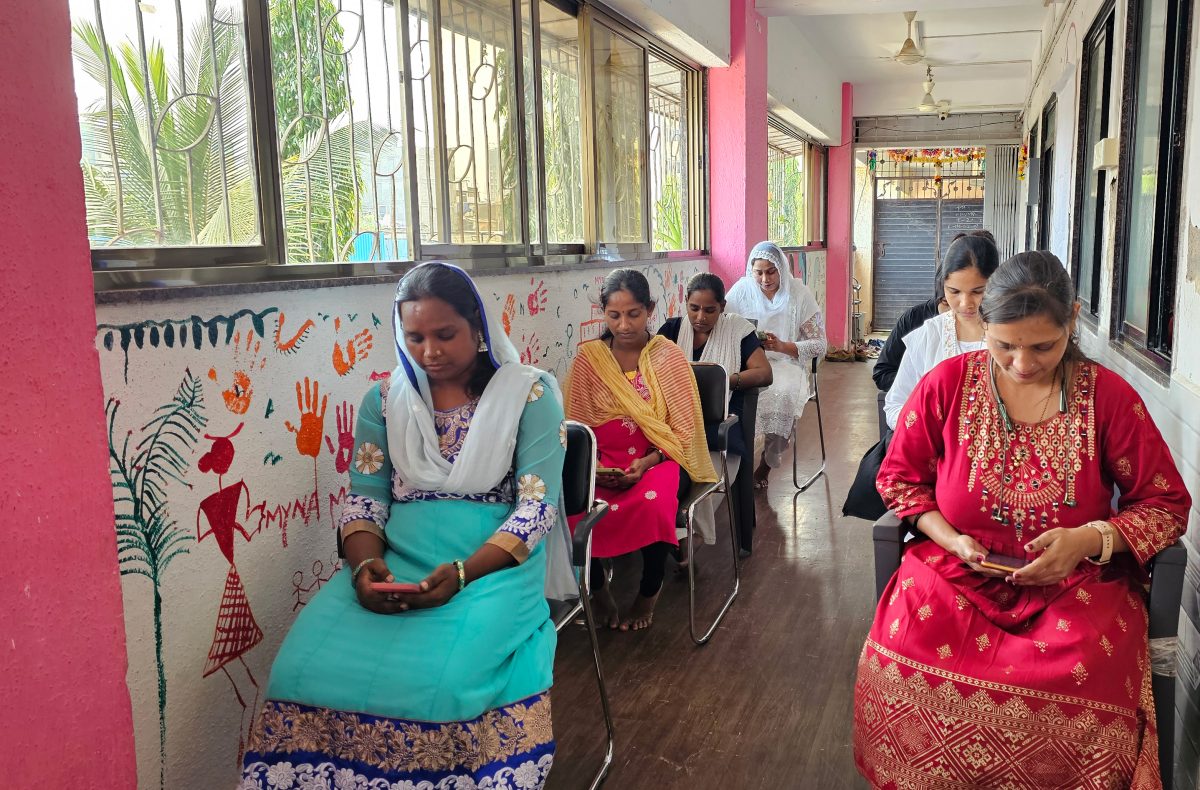
“By offering such a confidential and reliable AI tool, we are creating a safe space for women to not only access information and seek healthcare services without the fear of judgment but also for them to upskill in this new age technology,” she said. “Women in India are constrained by social norms and household responsibilities… we provide this flexible work from their homes or hyper-local offices that we have built in these communities.”
Because to meet the global demand for generative AI skills and build the workforce, the Generative AI Skills Challenge awardees know that traditional skilling and pathways are not going to suffice.
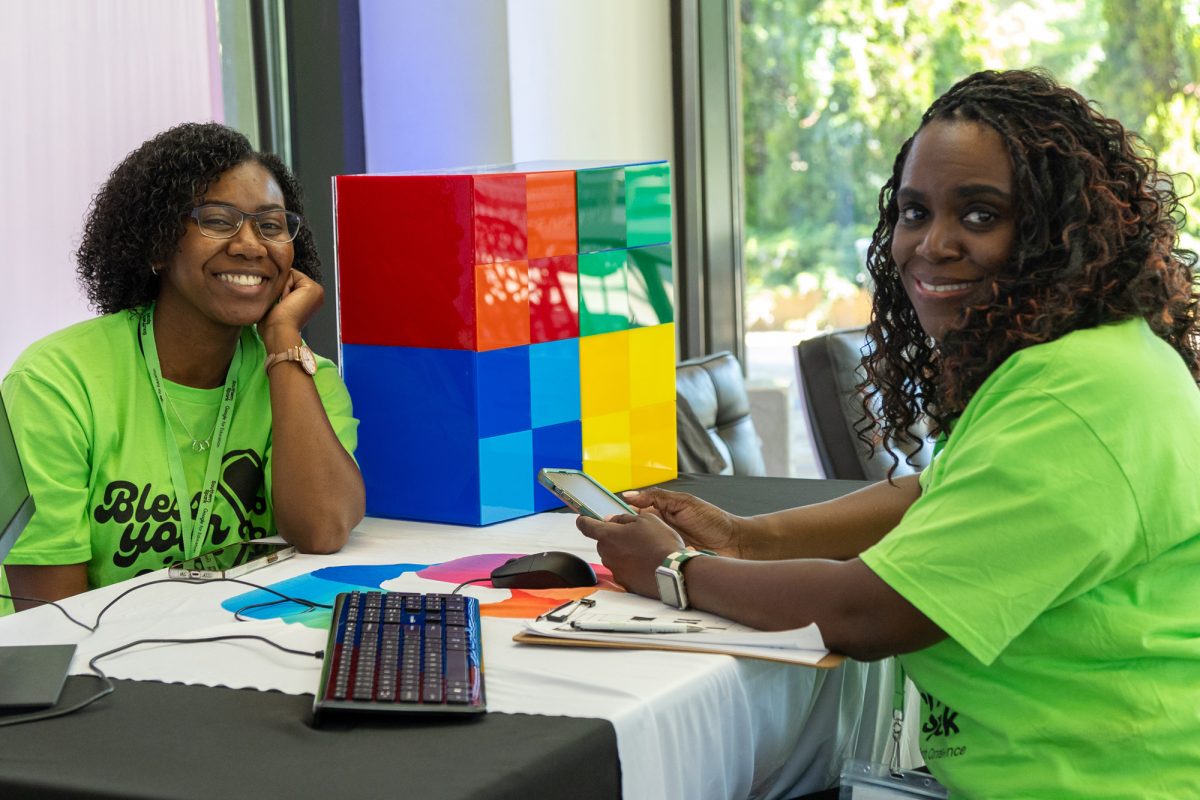
“When we were thinking about what an AI career looks like, we realized that AI will be integrated into all careers,” said Dr. Brittany Myburgh, an assistant professor of art history at Jackson State University, one of the partners in the Mississippi AI Collaborative that is developing an AI ecosystem, including an apprenticeship program and intensive AI curriculum program for teachers, students, and businesses. “Rather than building a career pipeline in AI, it was important to focus on a knowledge pipeline to upskill everyone in Mississippi in generative AI and meet them where they’re at.”
To learn more about the projects and reach of our awardees, watch the webinar and explore Skilling that Scales: The Generative AI Skills Challenge Impact Report.
